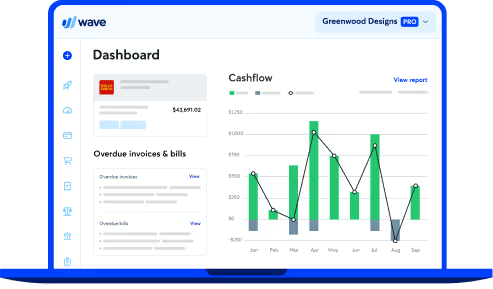
How to balance running multiple businesses at once
If you are running multiple companies at once, you're likely either an experienced entrepreneur, or a startup founder who's not quite ready to let one of your ideas go. In both cases, you might find something useful from this article, and you'll be happy to know that you're part of an increasingly bigger group of people. Look at leading dual-CEOs, such as Jack Dorsey, CEO of Twitter and Square, or Elon Musk, CEO of Tesla and SpaceX, who are changing the world.
But, to bring ourselves back down to earth a bit, we've gathered key strategies from some everyday entrepreneurs who've learned a thing or two about running multiple small- or medium-sized businesses.
In this article, we focus on how to manage people in your multi-company journey. We'll cover:
- Learning to let go
- Co-ownership and co-founders
- Developing horizontal leaders
- Bringing in operational experts
- Outsourcing and delegation
We’re going to focus on people because they are the bread and butter, and the core, of any company. You're only as good as your people. And especially in the age of small business and entrepreneurship, those first few employees - and how you lead them - can make a real difference.
1. Learn to let go
When you first start a company, you're doing everything: product, sales, customer success - you name it. And that can make it hard, when you start growing, to let go.
But I really like how Roy Hessel, CEO of Clearly and Coastal, portrays his own learnings on running multiple businesses (he runs a few and has nearly 1,000 employees). In an article on Entrepreneur, his number one tip is to give teams a long leash. What that means is giving people the space to be able to lead on different fronts. That's the only way that your companies can grow steadily.
Giving a long leash also means not micro-managing your team members or executives. Instead, your role as a CEO should increasingly be to offer support and guidance. Those are strategic value adds that you can provide - without getting into the weeds of the day-to-day.
2. Co-ownership and co-founders
Building on the idea of giving your team members the latitude to make choices, it may be in your best interest to turn to co-ownership or working with talented co-founders to grow your companies.
In an interview with Inc, Norm Brodsky, the founder of CitiStorage and an operator of many businesses, speaks about the importance of co-ownership. He often brings in new talent and equips them to run his various businesses. It's how he's been able to work in everything from storage, to hotels, to the world of restaurants.
You'll often hear that no one will ever care as much as you - because you are the owner of the company. So, knowing that, and the weight that comes with it… why be the only one? You might want to consider owning a smaller piece, but of a bigger pie, that's easier to manage because you've got valuable support at the helm.
3. Horizontal leaders
There's also the idea of having people who are empowered to not only work in your businesses, but across them.
Hessel also speaks about this, where he has a CFO and other employees who actually work fractionally across the businesses to service the different companies and their needs. He describes these as "horizontal leaders" who work across his various verticals.
Investing in horizontal leaders is like having a business within a business. And it enables you to have an in-house swat team that has a vested interest in monitoring and helping all of the companies grow. That way, you won't feel like you're the only one shepherding the whole flock.
4. Bring in operational experts
You can't survive with just strong horizontal leaders - otherwise you might be broad across many areas, but not deep in any. This could leave you open to being surpassed by a competitor, or stop your businesses from working at the level of operational efficiency that you need them to.
It's for these reasons that in an article with American Express, serial entrepreneur Murray Newlands speaks to the importance of bringing in experts. I like to call them operational experts, as they are the people who can help you get your operations in order in specific areas. For example, an engineering specialist or a marketing guru can help you create a winning strategy quickly in their fields.
If you don't have that knowledge in-house and are seeking this type of input outsourcing can be very beneficial.
5. Outsource and delegate
Outsourcing is often given a bad rap and brings up associations of endless off-shore call centres. This is a pretty big misconception of how outsourcing actually works, and completely neglects how much positive impact it could have on the efficiency and quality of work you receive..
In fact, technology and a global marketplace have rapidly made outsourcing one of the best, if not essential, ways to quickly ramp up your talent capacity. And beyond capacity, you might be able to outsource to get some incredible talent. Here are some top websites for hiring:
- TopTal: this is the top 1% of talent. Well, not quite. The top 3%. But you get the idea — these folks are really good, and they are everything from designers to developers to management consultants.
- Upwork: this is a reliable source for mid-range to lower-range contractors who are available at an affordable price. This is a great platform that makes it easy to post jobs and request proposals, or even hire on the spot if you need to.
- Fiverr: they are great for small tasks like a fast audio transcription, or a quick search engine audit, to make sure your business stacks up in Google Search.
The other side of outsourcing, if you want to make it a successful tactic, is your ability to delegate. Of course, your ability to delegate matters with your full-time employees, and the other sections above speak to that. But with contractors, delegation is a bit of a different mindset.
When you delegate to contractors, you should think about anything that's one-time or lower impact that you can pass off. While you probably don't want to hand down constant menial tasks to your employees - because you might no longer be their favourite boss - that's a problem that outsourcing can solve for you, so that you and your employees can stay focused on high value activities across your businesses.
Key takeaway
The overall takeaway here is that you need to invest in, and trust, other people to run major parts of the operations of your business. You need to be willing to let go: of a certain way that you like things done, or even sharing ownership of your companies.
Being able to delegate, outsource, and rely on the expertise of others will help you to scale faster and sustainably. If you invest in your people, they'll be able to make running multiple businesses far more manageable and enjoyable.
(and create unique links with checkouts)
*While subscribed to Wave’s Pro Plan, get 2.9% + $0 (Visa, Mastercard, Discover) and 3.4% + $0 (Amex) per transaction for the first 10 transactions of each month of your subscription, then 2.9% + $0.60 (Visa, Mastercard, Discover) and 3.4% + $0.60 (Amex) per transaction. Discover processing is only available to US customers. See full terms and conditions for the US and Canada. See Wave’s Terms of Service for more information.
The information and tips shared on this blog are meant to be used as learning and personal development tools as you launch, run and grow your business. While a good place to start, these articles should not take the place of personalized advice from professionals. As our lawyers would say: “All content on Wave’s blog is intended for informational purposes only. It should not be considered legal or financial advice.” Additionally, Wave is the legal copyright holder of all materials on the blog, and others cannot re-use or publish it without our written consent.


























